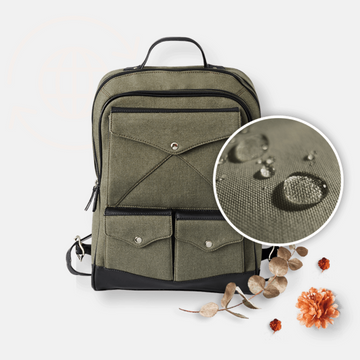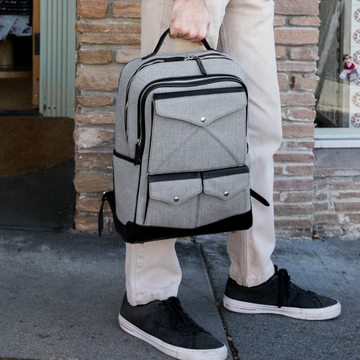In the global effort to reduce our environmental footprint, one of the key battlegrounds is the choice between plant-based bags and their traditional counterparts. As consumers, understanding the nuances of this decision can empower us to make choices that align with a sustainable future. Let's embark on a journey to unravel the complexities and benefits of both options, shedding light on the environmental impact of our daily bag choices.
The Environmental Quandary of Regular Bags:
Traditional plastic bags, derived from non-renewable fossil fuels, have long been at the forefront of environmental concerns. The production process involves extracting and processing oil, emitting harmful greenhouse gases into the atmosphere. Once discarded, these bags persist in landfills for centuries, contributing to a growing global issue of plastic pollution. The alarming impact on wildlife and ecosystems has prompted a call for alternatives that tread more lightly on our planet.
The Emergence of Plant-Based Bags:

Enter the eco-friendly contender – plant-based bags. Crafted from renewable resources such as cornstarch, sugarcane, or other plant-derived materials, these bags aim to address the environmental shortcomings of their traditional counterparts. Let's delve into the specifics of how plant-based bags are changing the game in the pursuit of a greener tomorrow.
Breaking Down Plant-Based Bags:
Sustainable Raw Materials:
Plant-based bags are a departure from the fossil fuel-dependent model of traditional bags. By utilizing renewable resources, such as crops that can be replanted and harvested annually, these bags strive to reduce reliance on finite resources and contribute to a more sustainable supply chain.
Biodegradability and Composability:
One of the standout features of plant-based bags is their biodegradability. Unlike traditional bags that endure for centuries, plant-based bags break down more rapidly under proper conditions, often within weeks. This accelerated decomposition reduces the strain on landfills, presenting a viable solution to the long-lasting environmental impact associated with plastic waste.
Carbon Footprint Reduction:
The production of plant-based bags tends to have a lower carbon footprint compared to their traditional counterparts. Plant cultivation for bag production involves processes that absorb carbon dioxide, contributing to a more balanced and eco-friendly manufacturing cycle.
Waste Management Advantages:
Plant-based bags offer a tangible solution to the global plastic waste crisis. As they break down into natural components, the risk of marine pollution decreases, and the potential harm to wildlife is minimized. This aligns with global initiatives to curb the environmental impact of plastic materials.
Considerations and Criticisms:

Land Use and Agriculture Impact:
Critics argue that the widespread adoption of plant-based bags may lead to increased agricultural activity, potentially impacting land use and biodiversity. Striking a balance between sustainability and responsible agricultural practices becomes crucial in addressing this concern.
Energy Consumption:
While plant-based bags are generally considered more eco-friendly, their production process still requires energy. Assessing the energy mix used in manufacturing becomes essential to ensure that the overall environmental impact remains positive.
Waste Sorting Challenges:
The success of plant-based bags in reducing environmental impact relies on proper waste management infrastructure. If these bags end up in traditional plastic recycling streams, they might not decompose as intended. Education and improved waste sorting systems are essential to maximize the benefits of plant-based materials.
Conclusion:
Choosing between plant-based and regular bags isn't just about carrying stuff; it's about being a superhero for our planet. Plant-based bags might have a few things to figure out, but they're definitely on the right track to making the Earth smile again.
So, the next time you're grabbing a bag for your groceries, think about which one is giving a helping hand to our beautiful home – because together, small choices add up to a big impact. Let's make a cleaner, greener tomorrow!
FAQs (Frequently Asked Questions):
Are plant-based bags truly better for the environment than regular bags?
Yes, in many ways. Plant-based bags often come from renewable resources, have a lower carbon footprint, and biodegrade faster than traditional bags, addressing key environmental concerns associated with plastic pollution.
Won't increased agriculture for plant-based bags harm the environment?
It's a valid concern. While plant-based bags offer a greener alternative, responsible agricultural practices and sustainable land use are crucial to avoid negative impacts. Striking a balance between meeting demand and preserving ecosystems is essential.
Do plant-based bags require special disposal methods?
Ideally, yes. Plant-based bags break down best in composting facilities. While they can degrade in natural environments, proper waste sorting and disposal infrastructure enhance their eco-friendly benefits. It's essential to educate consumers on the right way to dispose of these bags for maximum environmental impact.







